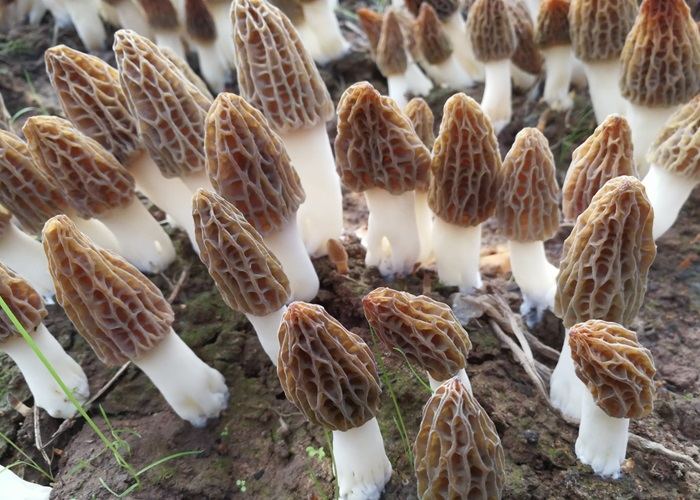Menopause is a natural biological process that marks the end of a woman’s reproductive years. It is often accompanied by a variety of symptoms such as hot flashes, mood swings, and sleep disturbances. Agnus castus, also known as chaste tree or Vitex agnus – castus, has been a subject of interest as a potential natural remedy for menopausal symptoms.
Understanding Menopause and Its Symptoms
Hormonal Changes
During menopause, a woman’s ovaries produce less estrogen and progesterone. Estrogen decline is a major factor contributing to the onset of symptoms. Hot flashes, which are sudden feelings of warmth often accompanied by sweating and a rapid heartbeat, are one of the most common symptoms. These are thought to be related to the body’s attempt to adjust to the changing hormonal environment.
The reduction in progesterone can lead to mood changes, including irritability, anxiety, and depression. Sleep problems such as insomnia or disrupted sleep patterns are also prevalent. These symptoms can significantly impact a woman’s quality of life and overall well – being.
Properties of Agnus Castus
Hormonal Regulation
Agnus castus is believed to have an effect on the hormonal system. It contains compounds that can interact with the pituitary gland, which plays a crucial role in regulating the hormones secreted by the ovaries. By influencing the pituitary – ovarian axis, it may help to balance the hormonal changes that occur during menopause.
Some studies suggest that Agnus castus can increase progesterone levels. In theory, this could potentially alleviate some of the symptoms associated with progesterone deficiency, such as mood swings and irregular menstrual cycles (in the perimenopausal phase). However, the evidence regarding its direct impact on hormonal regulation in menopause is still somewhat limited.
Anti – Inflammatory and Neurotransmitter Modulation
The plant also has anti – inflammatory properties. Inflammation is thought to play a role in many menopausal symptoms, including joint pain and cardiovascular risks that may increase during this period. By reducing inflammation, Agnus castus may provide some relief from these symptoms.
Additionally, it may affect neurotransmitters in the brain. For example, it could influence serotonin levels. Serotonin is a neurotransmitter involved in mood regulation, and its imbalance can contribute to mood disorders. By potentially modulating serotonin, Agnus castus might help to improve mood and reduce anxiety and depression symptoms during menopause.
Research and Evidence
Clinical Studies
Some clinical trials have investigated the use of Agnus castus for menopausal symptoms. In a few studies, women who took Agnus castus extracts reported a reduction in hot flashes. However, the results have been somewhat inconsistent across different trials. The variability in the formulation of Agnus castus products, the duration of treatment, and the characteristics of the participants may contribute to these differences.
For mood – related symptoms, there is also some evidence suggesting a positive effect. Women taking Agnus castus may experience less irritability and improved well – being. But more research is needed to confirm these findings and to understand the exact mechanisms through which it works.
Comparisons with Conventional Treatments
When compared to hormone replacement therapy (HRT), Agnus castus is a non – hormonal alternative. HRT is effective in treating menopausal symptoms but comes with potential risks such as an increased risk of breast cancer, blood clots, and stroke. Agnus castus, on the other hand, may offer a more natural option with a potentially lower risk profile. However, it’s important to note that its effectiveness may not be as pronounced as that of HRT in severe cases.
How to Use and Precautions
Dosage and Formulations
Agnus castus is available in various forms, including capsules, tinctures, and dried berries. The recommended dosage can vary depending on the form and the specific product. Generally, for menopausal symptoms, a daily dose of the extract equivalent to about 20 – 40 mg of the active ingredients may be used. However, it’s crucial to follow the instructions provided by the manufacturer or consult a healthcare provider.
Possible Side Effects and Interactions
While Agnus castus is generally considered safe for most women, it can have side effects. Some women may experience mild gastrointestinal discomfort, such as nausea or indigestion. It may also interact with certain medications, especially those that affect the hormonal system or have a sedative effect. For example, it could potentially interact with antidepressants or hormonal contraceptives. Therefore, it’s essential to inform your healthcare provider if you plan to take Agnus castus, especially if you are taking other medications.
Conclusion
Agnus castus can help with menopause symptoms. It may help to alleviate hot flashes, mood swings, and other discomforts associated with menopause through its potential effects on hormonal regulation, anti – inflammation, and neurotransmitter modulation. However, more research is needed to establish its efficacy and safety definitively. Women considering using Agnus castus for menopause should do so under the guidance of a healthcare provider to ensure it is a suitable option for their individual health needs and to avoid potential interactions with other medications.


